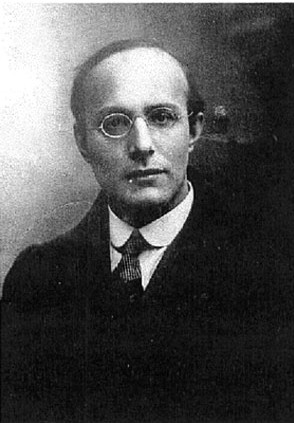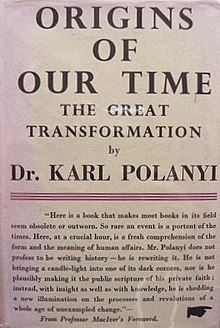
In trade, barter is a system of exchange in which participants in a transaction directly exchange goods or services for other goods or services without using a medium of exchange, such as money. Economists usually distinguish barter from gift economies in many ways; barter, for example, features immediate reciprocal exchange, not one delayed in time. Barter usually takes place on a bilateral basis, but may be multilateral. In most developed countries, barter usually exists parallel to monetary systems only to a very limited extent. Market actors use barter as a replacement for money as the method of exchange in times of monetary crisis, such as when currency becomes unstable or simply unavailable for conducting commerce.
In economics, a free market is an economic system in which the prices of goods and services are determined by supply and demand expressed by sellers and buyers. Such markets, as modeled, operate without the intervention of government or any other external authority. Proponents of the free market as a normative ideal contrast it with a regulated market, in which a government intervenes in supply and demand by means of various methods such as taxes or regulations. In an idealized free market economy, prices for goods and services are set solely by the bids and offers of the participants.
The term Homo economicus, or economic man, is the portrayal of humans as agents who are consistently rational and narrowly self-interested, and who pursue their subjectively defined ends optimally. It is a wordplay on Homo sapiens, used in some economic theories and in pedagogy.
Economic anthropology is a field that attempts to explain human economic behavior in its widest historic, geographic and cultural scope. It is an amalgamation of economics and anthropology. It is practiced by anthropologists and has a complex relationship with the discipline of economics, of which it is highly critical. Its origins as a sub-field of anthropology began with work by the Polish founder of anthropology Bronislaw Malinowski and the French Marcel Mauss on the nature of reciprocity as an alternative to market exchange. For the most part, studies in economic anthropology focus on exchange.

Karl Paul Polanyi, was an Austro-Hungarian economic anthropologist, economic sociologist, and politician, best known for his book The Great Transformation, which questions the conceptual validity of self-regulating markets.
In cultural anthropology, reciprocity refers to the non-market exchange of goods or labour ranging from direct barter to forms of gift exchange where a return is eventually expected as in the exchange of birthday gifts. It is thus distinct from the true gift, where no return is expected.

Embedded liberalism is a term in international political economy for the global economic system and the associated international political orientation as they existed from the end of World War II to the 1970s. The system was set up to support a combination of free trade with the freedom for states to enhance their provision of welfare and to regulate their economies to reduce unemployment. The term was first used by the American political scientist John Ruggie in 1982.
Substantivism is an economic position that helps to explain the social relations embedded within the economy. First proposed by Karl Polanyi he argues that the term "economics" has two meanings. The formal meaning, used by today's neoclassical economists, refers to economics as the logic of rational action and decision-making, as rational choice between the alternative uses of limited (scarce) means, as "economizing", "maximizing", or "optimizing".
In cultural anthropology and sociology, redistribution refers to a system of economic exchange involving the centralized collection of goods from members of a group followed by the redivision of those goods among those members. It is a form of reciprocity. Redistribution differs from simple reciprocity, which is a dyadic back-and-forth exchange between two parties. Redistribution, in contrast, consists of pooling, a system of reciprocities. It is a within group relationship, whereas reciprocity is a between relationship. Pooling establishes a centre, whereas reciprocity inevitably establishes two distinct parties with their own interests. While the most basic form of pooling is that of food within the family, it is also the basis for sustained community efforts under a political leader.
Inclusive capitalism is a theoretical concept and policy movement that seeks to address the growing income and wealth inequality within Western capitalism following the financial crisis of 2007–2008.
In economics, nonmarket forces are those acting on economic factors from outside a market system. They include organizing and correcting factors that provide order to markets and other societal institutions and organizations, as well as forces utilized by price systems other than the free price system.
Throughout modern history, a variety of perspectives on capitalism have evolved based on different schools of thought.

Debt: The First 5,000 Years is a book by anthropologist David Graeber published in 2011. It explores the historical relationship of debt with social institutions such as barter, marriage, friendship, slavery, law, religion, war and government. It draws on the history and anthropology of a number of civilizations, large and small, from the first known records of debt from Sumer in 3500 BCE until the present. Reception of the book was mixed, with praise for Graeber's sweeping scope from earliest recorded history to the present; others raised doubts about the accuracy of some statements in Debt.

Svetlana Kirdina-Chandler is a Russian sociologist and economist. Scientific career began in the Novosibirsk School of Economic Sociology. Doctor of Social Sciences, PhD. Research interests: sociological theory, institutions, economic theory, the theory of institutional matrices, transients in Russian society. Author of over 160 scientific papers, the most important of which are devoted to the development and applications of the theory of institutional matrix. She introduced two main and particular interdependent types of institutional matrices existing around the world, X-matrices and Y-matrices.
The X-matrix is characterized by the following basic institutions:
The following basic institutions characterize the Y-matrix:
X-economies and Y-economies could, according to Kirdina, borrow certain properties from each other while keeping their institutional core, although a complete replacement of X-matrix with Y-matrix was not possible. Rather, changes in the basic institutions were likely to result in the destruction of the society as a whole. A typical example was the fate of the Roman Empire. Basic to Kirdina's position was a refusal to consider the market economy as superior to non-market ones, and thus she did not consider the transition from non-market to market economies as progress or modernization." To her both systems were of equal merit, and each of them was effective in its appropriate place.
In economics and economic sociology, embeddedness refers to the degree to which economic activity is constrained by non-economic institutions. The term was created by economic historian Karl Polanyi as part of his substantivist approach. Polanyi argued that in non-market societies there are no pure economic institutions to which formal economic models can be applied. In these cases economic activities such as "provisioning" are "embedded" in non-economic kinship, religious and political institutions. In market societies, in contrast, economic activities have been rationalized, and economic action is "disembedded" from society and able to follow its own distinctive logic, captured in economic modeling. Polanyi's ideas were widely adopted and discussed in anthropology in what has been called the formalist–substantivist debate. Subsequently, the term "embeddedness" was further developed by economic sociologist Mark Granovetter, who argued that even in market societies, economic activity is not as disembedded from society as economic models would suggest.
The opposition between substantivist and formalist economic models was first proposed by Karl Polanyi in his work The Great Transformation (1944).
The archaeology of trade and exchange is a sub-discipline of archaeology that identifies how material goods and ideas moved across human populations. The terms “trade” and “exchange” have slightly different connotations: trade focuses on the long-distance circulation of material goods; exchange considers the transfer of persons and ideas.
Historical materialism is Karl Marx's theory of history. Marx located historical change in the rise of class societies and the way humans labor together to make their livelihoods.
The double movement is a concept originating with Karl Polanyi in his book The Great Transformation. The phrase refers to the dialectical process of marketization and push for social protection against that marketization. First, laissez-faire reformers seek to "disembed" the economy to establish what Polanyi calls a "market society" wherein all things are commodified, including what Polanyi terms "fictitious commodities": land, labor, and money. Second, a reactionary "countermovement" arises whereby society attempts to re-embed the economy through the creation of social protections such as labor laws and tariffs. In Polanyi's view, these liberal reformers seek to subordinate society to the market economy, which is taken by these reformers to be self-regulating. To Polanyi, this is a utopian project, as economies are always embedded in societies.
The concept of fictitious commodities originated in Karl Polanyi's 1944 book The Great Transformation and refers to anything treated as market commodity that is not created for the market, specifically land, labor, and money.





